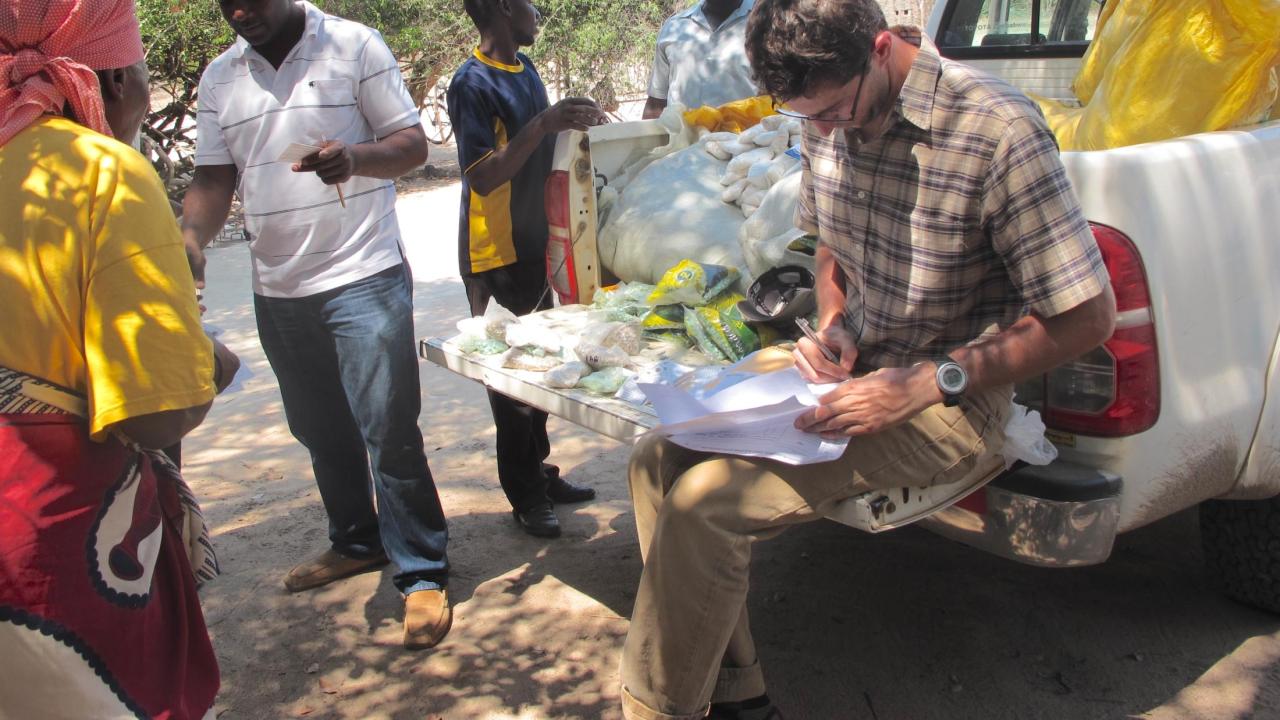
Hands-on Academic Research Partnerships
“Of course, academic research can be theoretical - and theoretical research is quite important. But it is often conducted closely alongside interventions, intimately involved with on-the-ground dynamics, and brings significant value to local actors. This is something we see across the MRR Lab portfolio.”
Tara Chiu, Associate Director of the Feed the Future Innovation Lab for Markets, Risk and Resilience hears myriad perspectives about academic research and its applicability to economic development and resilience challenges. Across the breadth of the Lab’s research, she draws on two longstanding projects as prime examples of how academic research can be not only in touch with local dynamics, but extremely valuable to on-the-ground actors:
- Bundling drought-tolerant maize seed and index insurance to create layered protection for farmers in Tanzania and Mozambique, while studying learning, uptake, resilience, and other topics; and
- Understanding the impact of Index-Based Livestock Insurance in Africa and developing additional solutions for pastoralist communities.
Importantly, academic research teams do not seek to establish ongoing field presence, and thus conduct interventions in close collaboration with local organizations, who will be positioned to continue implementing and scaling successful innovations.
In both examples, the MRR Lab’s partners included socially-minded insurance companies, who saw value in collaborating with the MRR Lab to advance their product development. Sumayya Hassan, CEO of Takaful Insurance of Africa describes the collaboration with the MRR Lab research team: “Their commitment to evidence-based research and data-driven insights has empowered us to make informed decisions and drive positive change in the respective business operations and strategic initiatives.”
Unique Resources for Experimenting and Learning
Academic researchers can bring resources for experimentation that are critical for innovation, testing new products before they are taken to scale. But companies are often hesitant to invest funds for uncertain returns.
For example, in our conversation with Israel Muchena, Managing Director of Life & Agricultural Insurance at Hollard Mozambique, he describes how Hollard Mozambique had given up on index insurance until the MRR Lab offered the resources, expertise, and partnerships to develop and test a new offering.
Additionally, economic impact data on how a product impacts the lives of the targeted population is not typically measured by the private sector, and certainly not at the level of precision of academic research teams. In Israel Muchena’s words, “Even if we tried, we would not have had the necessary know how and methodology.”
Yet, data on how their product impacted their customers is of both internal and external value to socially-minded companies. For example, the Mozambique office won an award within Hollard International for its social impact, given the concrete evidence base it has. Moreover, products like index insurance carry great interest to governments and development agencies, who may have funds to invest in them. Having an impact evidence base for firms like Hollard and Takaful can support them in securing such investments.
Beyond the data, the process of consulting with customers to design products and measure their impact can increase the financial provider’s presence in the field. Sumayya Hassan reflects, “The collaboration has deepened Takaful's engagement with local communities and built trust among our participants.”
Graduate Students Do Critical Work on the Ground
While most professors must limit their time in the field due to teaching commitments, graduate students are able to spend more time on evolving needs on the ground. Graduate students on MRR teams have taken on large activities for projects.
Jonathan Malacarne, now a professor and MRR Lab Principal Investigator, looks back on his PhD days: “I spent over two years in Mozambique—across multiple trips of 2-4 months each—doing outreach and marketing of the seeds+insurance bundle and supporting Hollard and our seed company partners as they learned how to deliver this new product to vulnerable farmers in remote communities.”
Now for the Mozambique project, current PhD student, Rachel Jones is spearheading new activities to increase responsiveness to women, as she discussed in a recent Q&A.
In northern Kenya, then-PhD student, now professor, Andrew Hobbs created a digital game to introduce the concept of livestock insurance to pastoralists, which provided valuable early learning not only to the pastoralists, but to Takaful Insurance as it developed the product.
Academic research teams are unique in their composition and in their contributions to economic development and resilience. Not only do their partnerships build local capacities and innovations, but the rigorously tested data they generate can provide critical value to on-the-ground knowledge, decision making, and innovation.
